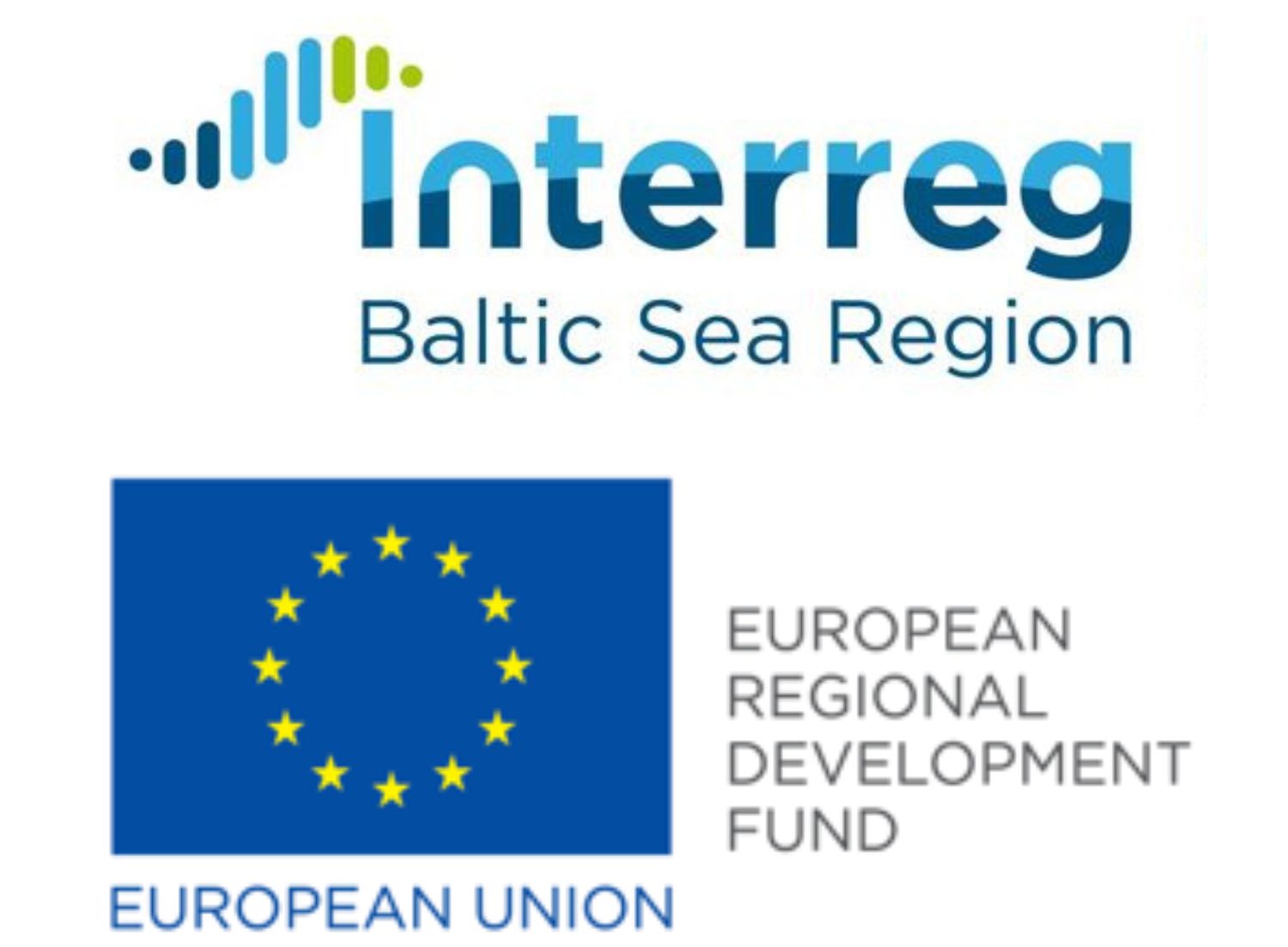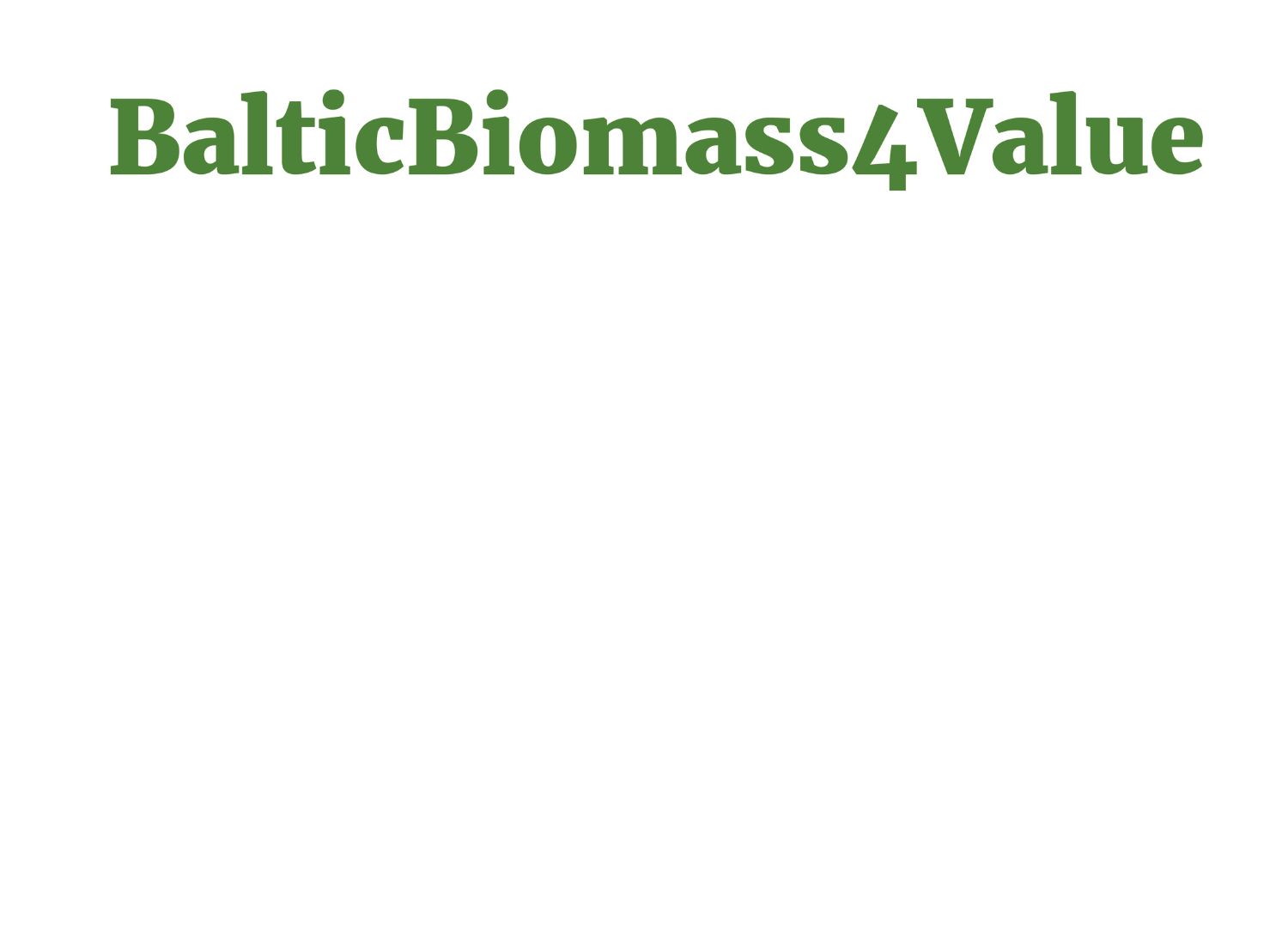Unlocking the Potential of Bio-based Value Chains in the Baltic Sea region (BalticBiomass4Value)
| Title | Unlocking the Potential of Bio-based Value Chains in the Baltic Sea region |
| Abbreviation | BalticBiomass4Value |
| Project number | R095 |
| Programme | Interreg Baltic Sea Region 2014 - 2020 |
Project partners
- Vytautas Magnus University (Lithuania) (lead partner)
- Ministry of Energy of the Republic of Lithuania (Lithuania)
- Forest Owners Association of Lithuania (Lithuania)
- Lithuanian Biotechnology Association (Lithuania)
- Vidzeme Planning Region (Latvia)
- Latvia University of Life Sciences and Technologies (Latvia)
- Ministry of Rural Affairs of the Republic of Estonia (Estonia)
- Estonian Chamber of Agriculture and Commerce (Estonia)
- Estonian University of Life Sciences (Estonia)
- Agency for Renewable Resources (Germany)
- 3N Lower Saxony Network for Renewable Resources and Bioeconomy (Germany)
- State Agency for Agriculture, Environment and Rural Areas of Schleswig-Holstein (Germany)
- University of Warmia and Mazury in Olsztyn (Poland)
- Halmstad University (Sweden)
- Norwegian Institute of Bioeconomy Research (Nibio) (Norway)
- Norwegian University of Life Sciences (Norway)
- Municipal enterprise of the city of Pskov “Gorvodokanal” (Russia)
Associated partners
- Nordic Council of Ministers Office in Lithuania (Lithuania)
- Latvian High Added Value and Healthy Food Cluster (Latvia)
- Danish Technological Institute (Denmark)
- Norwegian Bioenergy Association (Nobio) (Norway)
- Fortum Oslo Heating Ltd. (Norway)
- State Committee of the Pskov Region for Economic Development and Investment Policy (Russia)
- Ministry of Agriculture of the Republic of Lithuania (Lithuania)
- University of Klaipėda (Lithuania)
Project objectives
- To enhance the capacity of bioenergy development stakeholders to improve biomass value chains and utilize their business potential in the BSR.
- To enhance the capacity of regional/ local public authorities and communities to establish effective support systems for the development of circular bioeconomy in countries of the BSR.
- To enhance the capacity of circular bioeconomy innovation and business development actors to provide knowledge and technology transfer services and to widespread and initiate piloting of newly developed circular bioeconomy business models in the BSR.
Activities
- Identifying and assessing market opportunities, biomass potential, technologies and business models for circular bioeconomy development.
- Analysis of market outlook and future viability of different bioenergy products and value chains in the BSR energy system.
- Mapping of biomass value chains for improved sustainable energy use in the BSR.
- Preparation of good practice business models and example small and medium scale pilot business projects for sustainable bioenergy and side bio-products production in the BSR.
- Preparing guidelines for circular bioeconomy development support at local level and promoting them among public authorities.
- Analysis of regional/local support systems for circular bioeconomy development and preparation of good practice implementation guidelines for public authorities.
- Cross-border learning and promotion of good practice implementation guidelines for circular bioeconomy development at local level among public authorities.
- Improving circular bioeconomy innovation support services and initiating pilot business projects.
- Improving competences of existing knowledge and technology transfer service providers and organizing outreach activities to promote circular bioeconomy innovations in the BSR.
- Organization of consultations for potential pilot business projects in the BSR.
Results
- Enhanced capacity of public authorities responsible for natural resources, energy security and promotion of industry and economy within bioeconomy sectors at national, regional and local level, national and regional energy agencies, forestry and agricultural advisories, waste management agencies, as well as innovation and business development agencies, clusters and networks, business associations and business enterprises interested in circular bioeconomy development projects to improve biomass value chains and utilize their business potential in the BSR.
- Good practice business models and example small and medium scale pilot business cases for sustainable bioenergy and integrated side bio-products production in the BSR will be prepared and discussed in each project country.
- Enhanced capacity of regional development authorities, municipalities, local action groups to establish effective support systems for the development of circular bioeconomy in countries of the BSR.
- Good practice implementation guidelines and training program for regional / local public authorities on circular bioeconomy development and its support systems will be developed and introduced in each project country.
- Enhanced capacity of business enterprises to improve their business models or start new undertakings and to contribute to resource efficient green growth in the BSR.
- Enhanced capacity of knowledge and technology transfer of business associations, sectorial agencies, academic and research institutions.
Budget
Total budget: 2 792 643,46 EUR
Vidzeme Planning Region: 200 175,00 EUR
Implementation period
01.01.2019 - 30.09.2021
Contacts
Irīna Kulitāne
Mob. tel.: +371 29131859
e-mail: irina.kulitane@konso.lv


